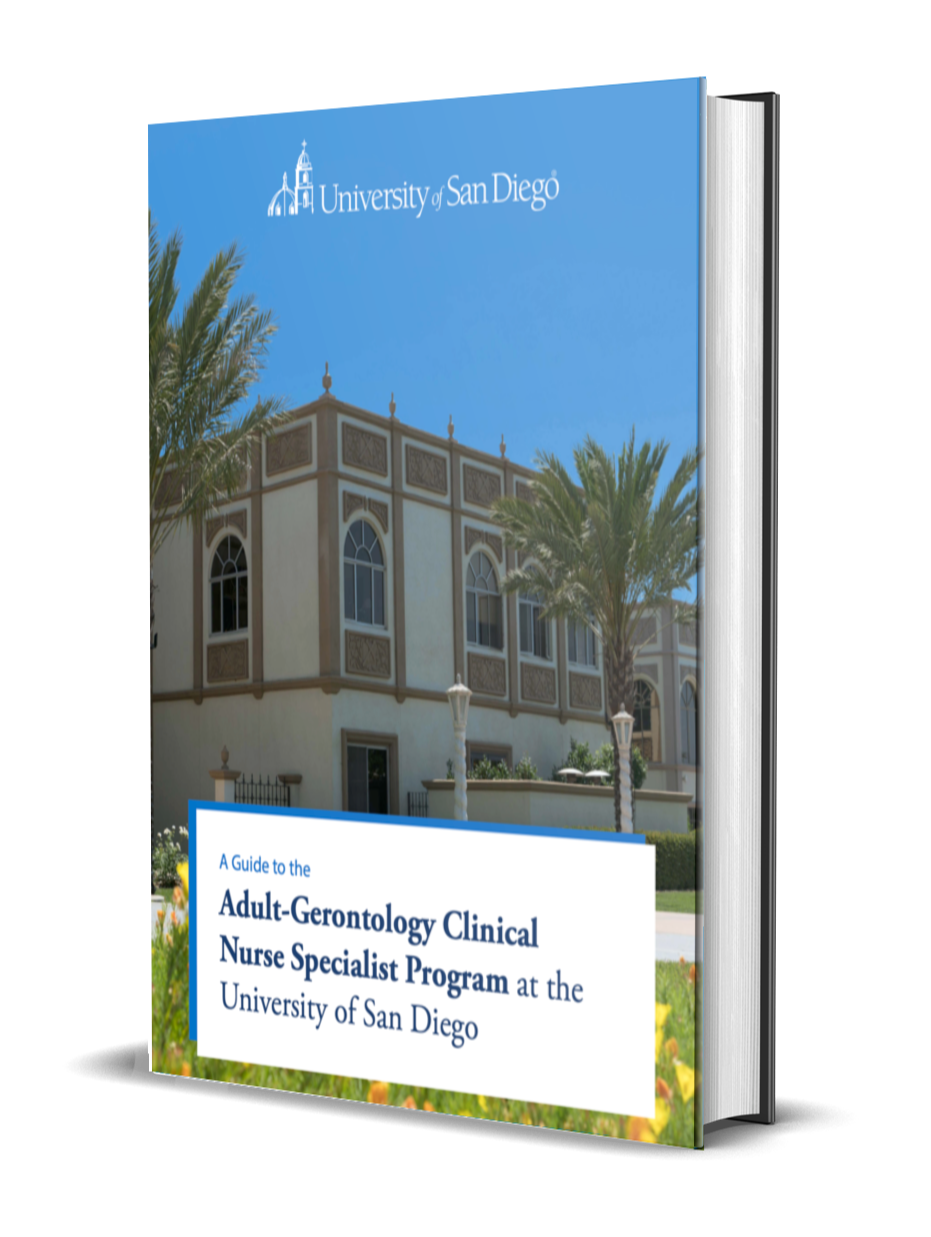
Discover the Benefits of a Nursing Degree From USD
The information in this blog post is for informational purposes only and is not intended to replace medical, financial, or professional advice.
If you're thinking about taking the next step in your career by earning a graduate degree in nursing, you are probably also wondering how you’re going to finance it. Graduate school can be a smart investment, but you don’t want to end up with an unmanageable burden of debt.
The good news is that there are many resources available to help you pay for your program so that you can finish with a valuable degree while avoiding the financial strain of too much debt.
Keep reading for an overview of the types of financial aid available to you and some helpful resources for finding more information.
Is it worth it? The benefits of getting an advanced degree in nursing
When thinking about the costs involved in graduate school, it’s easy to wonder if it really makes sense to get an advanced nursing degree. Let’s start with a reminder, then, of why it truly is an investment — something that can give you much more than you put into it in terms of time and money.
The most cited reason to earn an advanced nursing degree is the potential to earn more money. Nurses who hold an MSN typically earn around $20k more per year than RNs with a BSN. (Compare salary data for RNs and NPs in the San Diego Metropolitan area.)
But this pay difference isn’t arbitrary; it is in recognition of the fact that an advanced degree means greater expertise, which translates into better patient care and a larger contribution to a healthcare organization. Earning a degree means growing as a professional while you develop your skills and knowledge.
And this leads ultimately to greater opportunities. Whether you would like to expand into administrative positions, advanced specialties, or take on a teaching role, an advanced nursing degree will open new career pathways.
As you can see, the potential benefits of a degree are significant. Let’s take a look at some resources that can help you afford it.
Financing your degree: an overview of your options
Scholarships, grants, and loans
If you’re looking at graduate school, you already have some years of college education under your belt. That means you’re probably familiar with the basic types of financial aid. Just like with undergraduate studies, it is possible to find scholarships and grants (aid that you don’t have to repay) as well as loans (assistance that you’ll have to pay back).
There are a couple of points that are helpful to keep in mind:
- Consider Federal, State, and Private sources: Scholarships and grants can be offered by the program to which you are applying, your state, the federal government, and various private organizations. Make sure you consider all the possibilities. (We’ll discuss how to find them in more detail below.)
- Look at your future budget: Many students use federal student loans to pay for some of their education costs. The program offers attractive terms that allow you to borrow at reasonable rates.
It’s essential to have a realistic idea of the payments that will be required later and what that will mean for your budget. The Department of Education has a loan simulator that helps you explore your repayment options.
Service-based awards
One kind of grant that you may not be familiar with is service-based awards that help you pay for your schooling in exchange for a set period of service after you are done. These can be a great way to pay for your education costs in addition to giving you a rewarding work experience, often in underserved areas.
For example, California’s Advanced Practice Healthcare Scholarship Program provides up to $25k for one year of studies in exchange for an agreement to serve after graduation at a qualified healthcare facility in the state.
On the federal level, the National Health Service Corps is a similar program.
Loan forgiveness
One final type of aid to consider is loan forgiveness. These programs can help you repay loans you have taken out during your program. The Nurse Corps Loan Repayment Program, for instance, will repay as much as 85% of your student loans. As with service-based awards, those who receive this aid need to agree to a period of service in exchange.
How to find aid opportunities
If you are already interested in particular programs for your advanced nursing degree, their informational pages are a great place to begin looking for scholarship and grant opportunities. For one thing, schools usually have private aid opportunities that are specific to their students. They also often assemble useful information on outside resources for you to consider.
Don’t hesitate to call someone at the financial aid office to discuss your plans and ask for help. Financial aid advisors typically have lots of experience and may be able to recommend options you would otherwise miss.
Beyond that, here are some sites that will help you find aid opportunities specific to the nursing field:
- NursingScholarships.US
- FastWeb
- Johnson & Johnson
- American Association of Colleges of Nursing
- National Institute of Health
For all things related to federal student loans, head to the Federal Student Aid website.
University of San Diego financial aid resources
If you’re still exploring programs, the University of San Diego Hahn School of Nursing offers several graduate nursing programs on both the master's and doctoral levels. We equip students in a rigorous, research-intensive environment to move forward in their careers and serve their communities.
We understand that affordability matters and are proud to offer many scholarship opportunities to our students to put an advanced degree within reach. You can also connect with Amy Wright, Student Services Coordinator, at sonstudentservices@sandiego.edu to understand your financial aid options at USD.
Want to learn more? Request more information or explore our aid opportunities.
The information provided by USD’s Hahn School of Nursing and Health Science is for informational purposes only and is not intended to replace professional medical or financial advice. This includes, but is not limited to, blog posts, eBooks, webinars, emails, graphics, social media posts, and other content. Always seek the guidance of your physician or a qualified medical or financial professional.
A Guide to the University of San Diego's Adult-Gerontology Clinical Nurse Specialist Program
The University of San Diego's nursing program ranks among the best in the nation. But that's not the only reason future students walk through our doors to pursue one of our graduate degrees. Download our guide for an in-depth look at the Adult-Gerontology Clinical Nurse Specialist program and learn how our rich heritage of excellence in nursing education can help you achieve your academic and professional goals.
GET THE GUIDE




